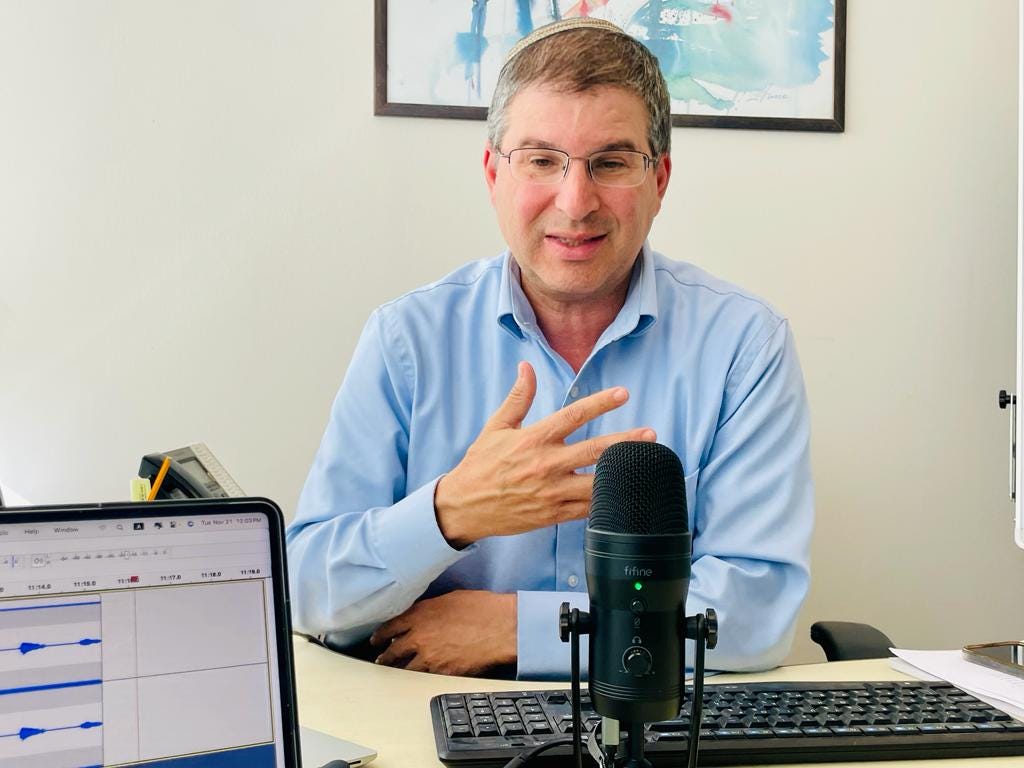The last seven and a half weeks in Israel have likely changed the course of the country—if not the shape of Jewish history writ large—for decades, or even generations. We don’t know if this war will spread, how it will end, what Israel will look like when it is over, be that in two months, a year or longer. But Israel, it is clear, will never be the same.
The military, social, diplomatic, political and ideological implications of this still-unnamed war are getting a great deal of attention. Behind the scenes, though, there are a myriad other ways in which Israel is shifting, among them, Jewishly and halakhically.
We have had the pleasure of speaking with Rabbi Seth Farber twice before on Israel from the Inside, first in our discussion of the Chief Rabbinate here and second in our conversation with him on Israel’s unique socialized medical system here. Rabbi Farber has been intimately involved in a number of halakhic issues that have arisen as a result of this war, and today, discusses with us three of them:
The burial in Jewish cemeteries of Israelis (many of them killed at the Nova party) who were not halakhically Jewish. The press covered the issue of a young woman not being buried in a Jewish cemetery for that reason, but Rabbi Farber gives us a glimpse behind the scenes.
Families who wanted their loved ones cremated (I didn’t even know there was a place in Israel where one could do that). Rabbi Farber, an Orthodox rabbi, had what was for me a surprising approach to this painful issue.
Temporary burial—for people whose families will want them buried on their kibbutzim, but for now, needed another solution as those kibbutzim were closed military zones. Jewish law is not typically keen on temporary burial, so this, too, became an issue.
Beyond all this, though, Rabbi Farber sees in this war not only a potential turning point militarily, diplomatically and ideologically, but Jewishly as well. He explains how he believes the Jewishness of the Jewish state might change, and how the Jewish state’s sense of responsibility for Jews around the globe might also expand.
Rabbi Seth Farber was raised in Riverdale, New York, ordained by Yeshiva University, and today lives in Ra'anana with his wife and five children (three of whom are currently in the army). As the founder and director of ITIM: The Jewish Life Advocacy Center, Rabbi Farber is one of the most important people in Israel working to fashion a more inclusive religious establishment for Israeli Jews at all stages of their lives.
The link above will take you to a brief excerpt of our conversation; the full conversation, along with a transcript for those who prefer to read, is being made available to paid subscribers to Israel from the Inside.
If you’re just joining us, Israel from the Inside typically posts a written column on Mondays and a podcast on Wednesdays. That is obviously irrelevant for the time being.
We’ve delayed all the podcasts that were ready to go, because the people whose stories they tell deserve to tell them when we all have the bandwidth to hear. Hopefully, that will return some day.
In the interim, we’ll post as possible. Here in Israel, there are non-stop funerals to go to, shiva homes to visit, grandchildren to help care for while sons and daughters are in the army, so we’ll see.
Schedules are the least of our worries.
Impossible Takes Longer is now available on Amazon and Barnes & Noble and at other booksellers.
Music credits: Medieval poem by Rabbi Shlomo Ibn Gvirol. Melody and performance by Shaked Jehuda and Eyal Gesundheit. Production by Eyal Gesundheit. To view a video of their performance, see this YouTube:
Our Threads feed is danielgordis. We’ll start to use it more shortly.


















